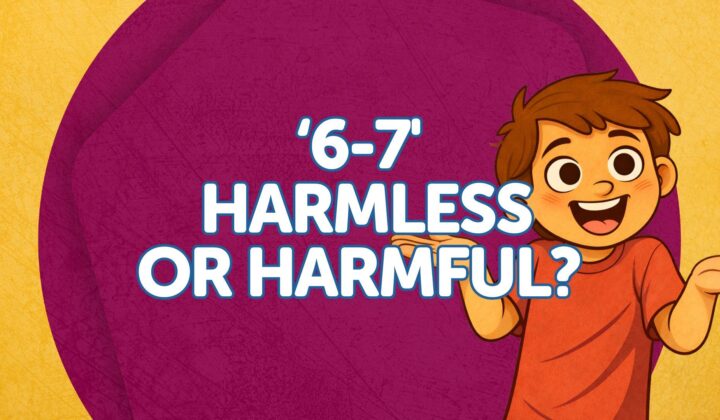Learn more about the journey that led to us equipping kids to carefully evaluate every idea they encounter.
Meet members of our team who have contributed to curriculum development.
Hear from real users of the Foundation Curriculum.
Learn what we believe about God, Jesus, Scripture, and more.
Why Do Our Children Need Comparative Worldview Education?
I will never forget the moment eastern meditation hijacked my classroom. It happened in the blink of an eye. The classroom projector went on the fritz. As I turned to fiddle with the wires, I heard a student say, “Guys, we should totally meditate to stay calm.” I immediately turned to address that comment, only to find half of my class sitting cross-legged, eyes closed, arms out-stretched, quietly giggling while saying “Ummmmm….Ummmmm.” After recovering from my shock, I began explaining that this type of meditation does not go along with Scripture. It comes from eastern religions. Blank stares. I might as well have been speaking to them in an eastern language.
This situation, and others like it, revealed that my students were not prepared to navigate the cultural influences they face daily. They needed instruction in what different worldviews teach and opportunities to evaluate whether or not those teachings align with reality.
In a previous post, we discussed what comparative worldview education is. This post will focus on why our children need comparative worldview education, and how it can address situations like the one I encountered in my classroom.
1. Our Children Need to Think Critically
Scripture commands that we carefully cultivate our minds and avoid the pitfalls of false ideas (Rom. 12:2, 2 Cor. 10:5, Col. 2:8). Yet research has shown that we are not equipping our children in this way. The situation I described above is a prime example. My students had adopted false ideas without a second thought.
Comparative worldview education trains children to critically evaluate every truth-claim they encounter. Doing this helps bolster their confidence in Christianity. Why? Because Christians have the truth on our side. Christianity is the worldview that actually lines up with reality!
2. Our Children Need Hearts and Minds Prepared to Worship God
We want our children to be life-long followers of Jesus who worship Him alone. However, when we only teach our children Bible stories and Christian principles, we fail to demonstrate that God encompasses all of reality. This hinders them from seeing God as the true object of worship.
Comparative worldview education helps children understand that God is the source of truth and the creator and sustainer of all. As my students went through Foundation Comparative Worldview Curriculum, they began to see God as present and sovereign over all areas of life. This knowledge prepared their hearts to delight in Him, the only one worthy of worship.
3. Our Children Need Preparation to Confront False Ideas
The end goal of any good teacher is to work him- or herself out of a job. We do not want to cripple our children by making them spiritually and intellectually dependent upon us. One day we will not be there when they are challenged by a nonbelieving friend, an atheist professor, or a heretical website.
Comparative worldview education prepares our children to encounter the hollow and deceptive philosophies of our culture. It equips them to evaluate such ideas and understand why they are not true. In this sense, comparative worldview education sets the stage for life-long discipleship.
My third-graders were not equipped to critically evaluate ideas when they turned our classroom into an eastern meditation center. If we want our children to be critical thinkers who faithfully follow Jesus and are prepared to confidently engage our culture, we need to train them to evaluate every truth-claim that comes their way. That is why we need comparative worldview education.

About Elizabeth Urbanowicz
Elizabeth Urbanowicz is a follower of Jesus who is passionate about equipping kids to understand the truth of the Christian worldview. Elizabeth holds a B.S. in Elementary Education from Gordon College, an M.S.Ed. in Education from Northern Illinois University, and an M.A. in Christian Apologetics from Biola University. Elizabeth spent the first decade of her professional career teaching elementary students at a Christian school. Elizabeth now works full time on developing comparative worldview and apologetics resources for children. Her goal is to prepare the next generation to be lifelong critical thinkers and, most importantly, lifelong disciples of Jesus.
Related Posts and insights

What Should I Do When My Child Is Crushed by Their Sin?
Help your child process grief over sin biblically. Learn the 5-part arc of identity—from image bearer to sanctification—that gives kids hope and context.

Affirm the Questions of the Children You Are Teaching
Affirm children’s questions to foster curiosity and lifelong learning. Discover a simple, biblical strategy for building a love of learning.

How Should Christians Respond to the "6 7" Trend? Helping Kids Think Biblically About Cultural Phrases
How should Christian parents handle the "six seven" trend? Learn to avoid the genetic fallacy and guide your kids to think biblically about cultural phrases.
